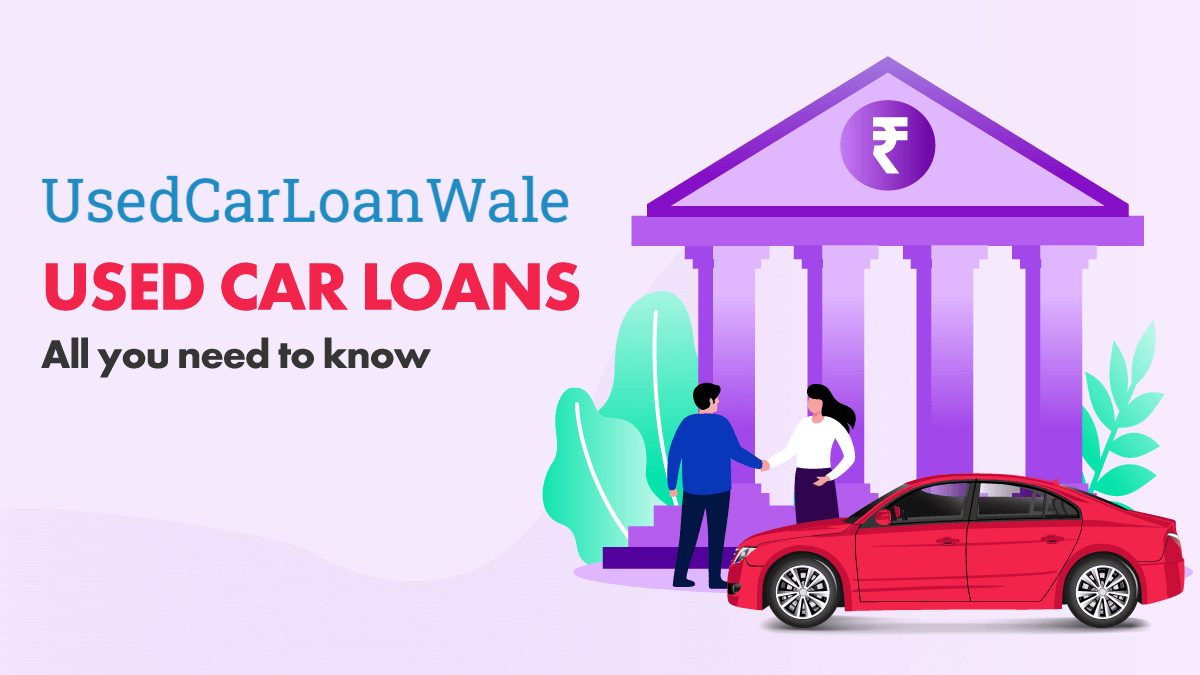 DOI : 10.17577/
DOI : 10.17577/Purchasing a used car is an attractive option for many Indians looking for value and practicality. However, finding the right financing can make a significant difference in your overall cost. Securing a used car loan with the lowest interest rates and minimal processing fees is essential to keeping your expenses down. This comprehensive guide will walk you through the steps to achieve this, providing tips and strategies to help you rank top on Google and make the most out of your car loan.

- Understand the Basics of Used Car Loans
A used car loan is a type of personal loan specifically designed for purchasing pre-owned vehicles. Unlike new car loans, which often come with more favorable terms, used car loans can be slightly more complex due to the car’s age and depreciation. Lenders typically view used cars as higher risk, which can affect the loan’s interest rate and processing fees.
- Check Your Credit Score
Your credit score is a critical factor in determining the interest rate you’ll receive on your used car loan. In India, a higher credit score often translates to lower interest rates and better loan terms. Before applying, check your credit report through credit bureaus like CIBIL, Equifax, or Experian. If your score is less than ideal, take steps to improve it—pay down debts, ensure timely bill payments, and correct any inaccuracies on your credit report.
- Determine Your Loan Requirements
Before seeking a loan, clearly define how much you need to borrow and what you can comfortably afford. Consider your monthly income, existing expenses, and financial commitments. Use online loan calculators to estimate monthly payments for different loan amounts and terms. This helps you set a realistic budget and avoid financial strain.
- Compare Lenders and Loan Offers
Different lenders offer varying rates and processing fees for used car loans. Here’s how to find the best deal:
- Banks and Credit Unions: Traditional financial institutions often provide competitive rates for used car loans. Check with major banks such as SBI, HDFC Bank, ICICI Bank, and Axis Bank, as well as local credit unions.
- Non-Banking Financial Companies (NBFCs): NBFCs can also offer attractive loan terms. Companies like Bajaj Finserv, L&T Finance, and Tata Capital are worth exploring for competitive rates and flexible terms.
- Online Lenders: Online platforms and fintech companies like Lendingkart and Capital Float provide fast, convenient loan options and may offer lower processing fees due to reduced overhead costs. Ensure the online lender is reputable and regulated.
- Look for Special Offers and Discounts
Lenders sometimes provide promotional rates or discounts on used car loans. Keep an eye out for special offers, festive season deals, or limited-time promotions. Additionally, if you have a pre-existing relationship with a bank or financial institution, you might be eligible for special rates.
- Negotiate Loan Terms
Don’t hesitate to negotiate with lenders. If you have a good credit score and a stable financial background, use this leverage to ask for better terms. Inquire about waiving or reducing processing fees, securing a lower interest rate, or adjusting the loan term to better suit your needs.
- Check the Processing Fees
Processing fees can significantly impact the overall cost of your loan. These fees are usually a percentage of the loan amount and cover administrative costs. When comparing loan offers, pay close attention to the processing fees and seek options with the lowest fees. Some lenders might offer to waive or reduce these fees under certain conditions.
- Review the Loan Agreement Carefully
Before signing any loan agreement, thoroughly review all terms and conditions. Ensure that you understand the following:
- Interest Rate: Verify whether the rate is fixed or variable. Fixed rates remain constant throughout the loan term, while variable rates can fluctuate based on market conditions.
- Loan Tenure: The length of the loan affects your monthly payments and total interest paid. Shorter terms usually mean higher monthly payments but less total interest, while longer terms result in lower payments but more interest.
- Prepayment Penalties: Check if there are penalties for early repayment. Some lenders charge fees if you repay the loan before the end of the term.
- Gather Necessary Documentation
To apply for a used car loan, you will need to provide specific documents. These typically include:
- Proof of Identity: Aadhar card, PAN card, passport, or voter ID.
- Proof of Income: Recent salary slips, bank statements, or income tax returns.
- Proof of Residence: Utility bills, rental agreement, or a recent bank statement.
- Vehicle Information: Details about the used car, including make, model, year, and Vehicle Identification Number (VIN).
- Submit a Complete and Accurate Application
Ensure that your loan application is complete and accurate. Incomplete or incorrect applications can lead to delays or rejections. Provide all required documents and double-check your information before submission.
- Monitor Your Loan Application
After submitting your application, stay in touch with the lender to track its status. Be prompt in providing any additional information or documents if requested. A proactive approach can help expedite the approval process.
- Manage Your Loan Wisely
Once your loan is approved, manage it responsibly. Make your monthly payments on time to avoid late fees and protect your credit score. If you face financial difficulties, communicate with your lender to explore possible solutions, such as loan restructuring or deferment.
Conclusion
Securing a used car loan with the lowest interest rates and minimal processing fees in Ahmedabad involves careful planning and research. By checking your credit score, comparing loan offers, negotiating terms, and understanding the loan agreement, you can make an informed decision and secure favorable financing. With these strategies, you can ensure that your used car purchase is both financially manageable and cost-effective, allowing you to enjoy your new vehicle with peace of mind.




